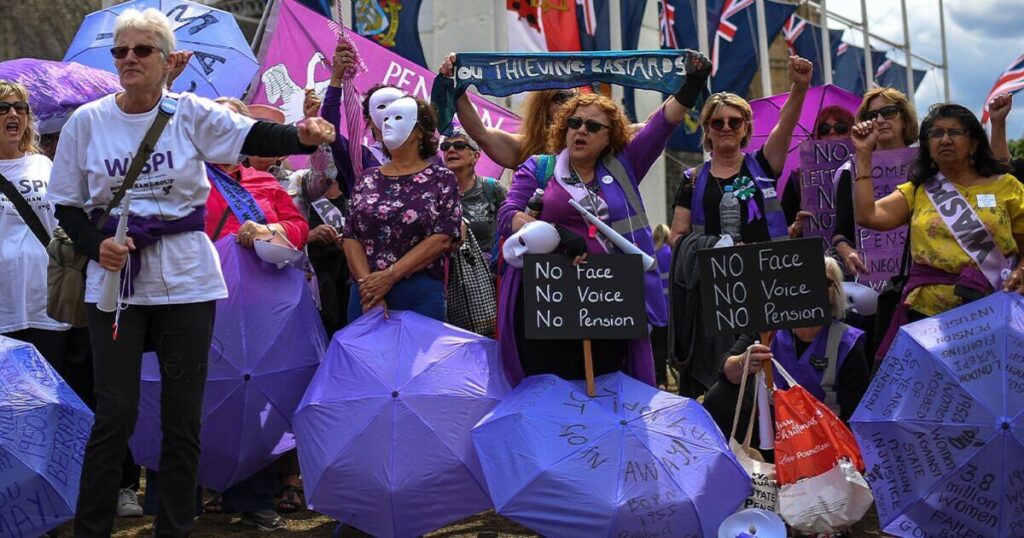
A finance expert has said the WASPI campaigners (Women Against State Pension Inequality) have a good chance of their on-going legal claim reaching the high court.
The group has applied for a judicial review of the DWP’s decision not to grant them compensation, despite the Parliamentary and Health Service Ombudsman previously recommending payouts ranging from £1,000 to £2,950.
Lawyers for both the WASPI campaigners and the DWP have sent in their documents presented their respective cases with the high court now to decide whether or not to take up the matter.
Ashley Akin, tax consultant and senior contributor at Stock Screener Tips, said the legal case has a “fair shot” of being taken on by the judges.
She explained: “The legal team behind WASPI believes the claim meets the basic standard the court needs to see: a clear legal issue with a realistic chance of success.
“They’ve also already raised enough funds to apply, which shows planning and support. Cases like this get filtered before reaching the courtroom, so just getting past this first step says something.”
A public fundraiser by WASPI for the judicial review has raised over £187,000 to date, with the campaign group hoping to get a costs capping order to limit how much they would have to pay to cover the DWP’s legal fees should they lose.
The dispute revolves around the 1950s-born generation of women who were affected when their state pension age increased from 60 to 65 and then 66.
They claim they were not properly informed of the change, with many unaware they would have to wait several more years to claim their state pension, ruining their retirement plans.
An investigation by the Parliamentary and Health Service Ombudsman said there was ‘maladministration’ in the DWP’s efforts to tell the women of the change, arguing that an important letter advising of the change should have gone out sooner.
But Government ministers said at the end of last year that there would be no compensation for the women, saying that most of the women knew of the change and it would have made little difference to send out letters sooner.
Ms Akin said there are some holes in the DWP’s reasoning for not granting payouts. She said: “The Ombudsman found maladministration and harm — a serious conclusion.
“Instead of taking that seriously, the Government relied on some surveys from back in 2006 and 2014, which had a lot of issues. Some of the questions were worded in ways that pushed people toward certain answers, and the structure didn’t give room for doubt or uncertainty.
“If that’s the foundation for saying women were properly informed, it’s shaky. If the court agrees the surveys were flawed and that the rejection was rushed or unfounded, that alone could be enough to overturn the decision.”
The 2014 survey suggested that most people do not read or recall letters sent from the DWP but WASPI has argued in presenting its case for the judicial review that this “does not in any event provide any cogent or rational answer to the nature of the injustice that the PHSO found to have been suffered”.
However, even if the high court does quash the DWP’s decision not to compensate, this does not guarantee the WASPI women will get payouts.
Ms Akin explained: “A court ruling would force the Government to go back and make a lawful decision, but it wouldn’t order them to pay money.
“That’s still up to the Government. But there’s more than just legal pressure here. There’s been public support, media coverage, and even MPs from different parties speaking up.
“In other cases where courts found unfair treatment, political pressure eventually pushed action. It’s possible the same could happen here, but until there’s a formal decision, nothing is promised.”
Many individual MPs back the WASPI cause and some political parties have called for compensation, including the Liberal Democrats and the SNP.
 Latest World Breaking News Online News Portal
Latest World Breaking News Online News Portal






